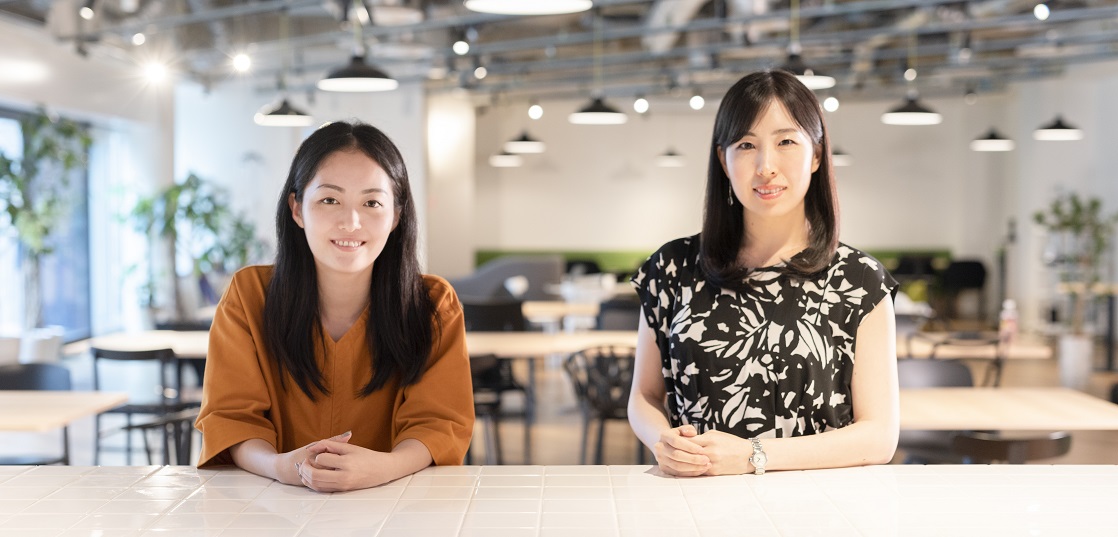How should we confront society in order to improve the future? Two young business owners talked about such a question.
Gomi Hayakawa, the representative director of Utsuwa Co., Ltd., and Shoko Takahashi, the representative of GeneQuest Co., Ltd. and the Executive Officer of Euglena Co., Ltd., have many things in common, although they are in different genres.
Continuing from the first part, which talked about the business we are currently working on, the source of motivation, and how to overcome hurdles, this is the second part of the dialogue, in which the keywords for living in the Reiwa era popped out.
The difference between what you can do and what you can do easily. Reiwa is in an era of "easy to do"
Shoko Takahashi (hereinafter Takahashi): The year has changed to Reiwa, but what is the sense of challenge that Mr. Hayakawa feels toward the world in the future?
Hayakawa Gomi (henceforth Hayakawa): Heisei was an era when there were more things you could do. Now that you can choose what you couldn't choose before, people can act more freely than before.
However, I thought that "what you can do" and "easy to do" are a little different. There are certainly more "choices" now, but there is still a big gap between "actual choices (easy to do)".
Takahashi:I agree. It is known that most people can actually "choose" no matter how many choices they have.
Hayakawa: My company's motto is "coexist". This expression is the best for me right now.
For example, same-sex marriage. Opponents don't have to admit it, and they don't have to affirm it. However, it's probably possible for people with different ideas to exist with each other. And it's easier than conflicting.
I think it is important for people with different values to be able to "choose" different options.
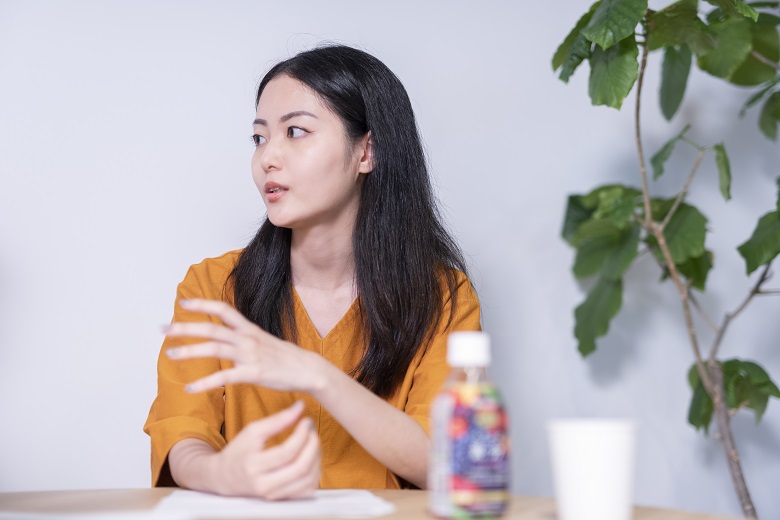
Hayakawa Gomi Hayakawa (President and CEO of Utsuwa Co., Ltd.)
Started making accessories when he was in the first year of high school, designing and selling print tights while taking an examination. Immediately after entering university, he launched the one-piece brand "GOMI HAYAKAWA", the lingerie brand "feast" which is his sister brand in August 2014, and the one-piece brand "Double Chaka" in October 2017, and continues to sell mainly e-commerce. After multiple pop-up shops, in 2018, we opened a permanent directly managed store "LAVISHOP" in Laforet Harajuku. We are good at problem-solving context design.
Takahashi: You're right.
Hayakawa: Especially in the world of the Internet, there are only discussions about which is correct, A or B, and which one wins, but I think it's okay if they exist in parallel. I will.
If there is something I wish for in the Reiwa era, coexistence is the norm, and I hope we can enter an era in which various options can be "actually selected (easy to do)".
Takahashi: I agree very much. Because, the world of living things is unexpectedly similar. Genes make offspring while competing with each other, saying, "I'm better than others." But if only one of the genes wins and the genetic diversity is reduced, it is easy to get a hereditary disease or to become extinct in the event of an accident.
Hayakawa: That's right. If it is too biased, the balance will be lost.
Takahashi:Okay. So, in the end, the existence of a gene of a different type from your own will increase the chances of survival of the species including yourself.
The mission of living things is to survive as individuals and prosper their species. Therefore, an individual who survives properly acts in the direction of valuing other genes, but if survival as an individual is not guaranteed, it will have to attack others.
Hayakawa: Somehow, it's just like the human world (laughs).
Takahashi: Yes, it's the same. Isn't there a person who attacks others very much on Twitter? Such people still survive as their own individuals ....
Hayakawa: The consciousness that I have to protect is working.
Takahashi:so. That's what I see when I have to protect it. It may be that selfishness and altruism are not in conflict, but that it is important for you to pursue selfishness and survive properly. As a result, I wonder if selfishness may finally spread to altruism.
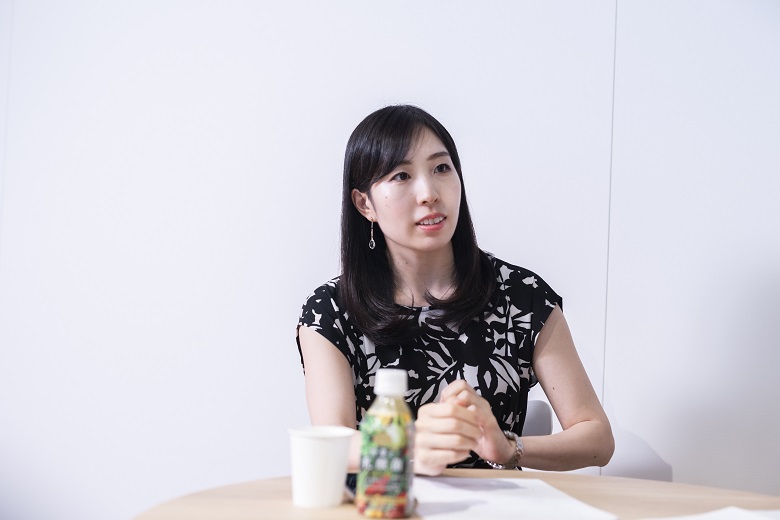
Shoko Takahashi (Euglena Co., Ltd. Executive Officer in charge of Bioinformatics Business / GeneQuest Co., Ltd. Representative Director)
Graduated from the Faculty of Agriculture, Kyoto University. In June 2013, he started GeneQuest Co., Ltd. while enrolled in the doctoral program at the Graduate School of Agriculture and Life Sciences, the University of Tokyo. Completed the doctoral course in March 2015 and obtained a doctorate. We provide a genome analysis service that conveys genetic information on disease risk and constitution to individuals. April 2018 Appointed Executive Officer in charge of Bioinformatics Business, Euglena Co., Ltd.
Hayakawa: Have you survive well (laughs). It's a very interesting story. But I think it's very risky to deny an existence that you don't understand. Because tomorrow, I could become a minority. On the contrary, you may end up strangling yourself.
The important thing is to be self-aware of what you don't know
Takahashi: Therefore, the word "coexistence" that Mr. Hayakawa mentioned becomes very important again. In other words, is it a nuance such as "does not interfere"?
Hayakawa: Does that mean you don't try to understand everything within yourself? The world is full of mysterious and unreasonable things, so it seems like it's okay to stay in that state.
Takahashi:I see. It may be close to the feeling that you know that you are "ignorant."
I have a lot of things I want to do with life science technology, but I feel that ideas such as "I'm afraid of not knowing" and "I deny because I don't know" are obstacles to advancing research. You may.
Hayakawa: For example, what kind of research do you have?
Takahashi: For example, genome-edited foods. This is completely different from genetically modified foods, but people who oppose genetic modification are also campaigning against genome editing foods without knowing what genome editing is. ..
There are few people who understand genome editing very accurately by taking questionnaires to those who disagree, and many people say "I have heard only words" and "I have not even heard". , Many people are against it.
Hayakawa: Reflexively, it feels like "Edit !? I have to oppose it !!"
Takahashi:I agree. For example, the genome of wheat, which is said to be responsible for two-thirds of the calorie intake of the world's population, was deciphered last year, but by understanding and editing that genome, the world will be in the future. It is said that it has the potential to solve the food problem of wheat. Even though there are so many things that technology can solve, if the majority of people say "somehow dangerous", it can't even be used.
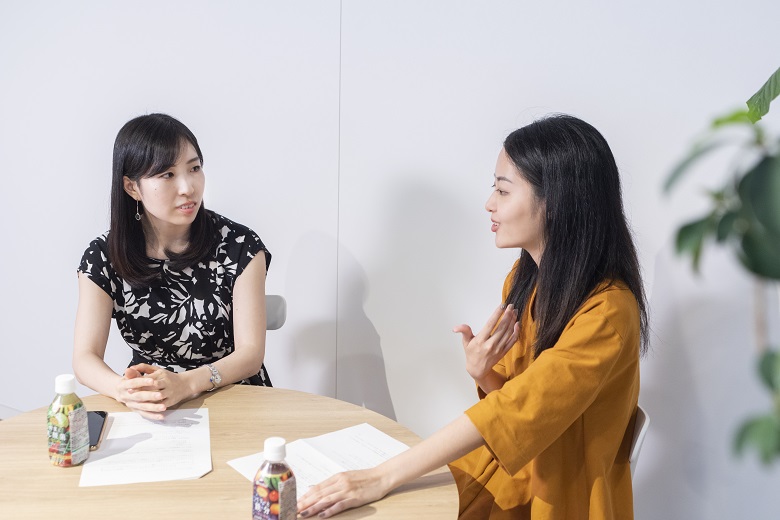
Hayakawa: People who don't want to eat shouldn't eat it. There is no need to forcibly accept it rather than deny its existence.
Takahashi: However, the fact that there are always a certain number of people who oppose new things can be said to guarantee diversity as a species.
Hayakawa: I see (laughs). When you are studying life science, it seems that you will have some leeway in your mind. It seems that things can be judged by "whether it is biologically rational". With that kind of knowledge, I feel that the way the world looks will be new.
The state of "continuing to learn" makes life gorgeous.
Takahashi: I think that knowing and learning new things is like hope in any age. Mr. Hayakawa is also familiar with various fields, so it seems that there are many opportunities to learn.
Hayakawa: If you are interested in one thing, it may be customary to associate it from there and walk across various genres.
Recently, hypnosis-> brain science-> consciousness of life-> the actual condition of pickpockets, and so on (laughs). The first thing I was interested in was the mechanism of hypnosis, but in the end, it seems like I learned that "Oh, I can't protect myself from pickpockets."
Takahashi: That's really interesting (laughs). While it is interesting that I am interested in it, I think that many people find it quite difficult to get people interested by working on their own, as in the example of genome editing I mentioned earlier. How is it?
Speaking of Mr. Hayakawa's business, for example, "Please be interested in sanitary napkins" for men.
Hayakawa: Oh, I'm good at that. I think that I was originally from the advertising field, but by evoking surprises and gaps at the same time, people are interested in it.
"Actually, sanitary napkins became popular in Japan after color TV," he said, "Seriously?" "Well, why were women until then?"
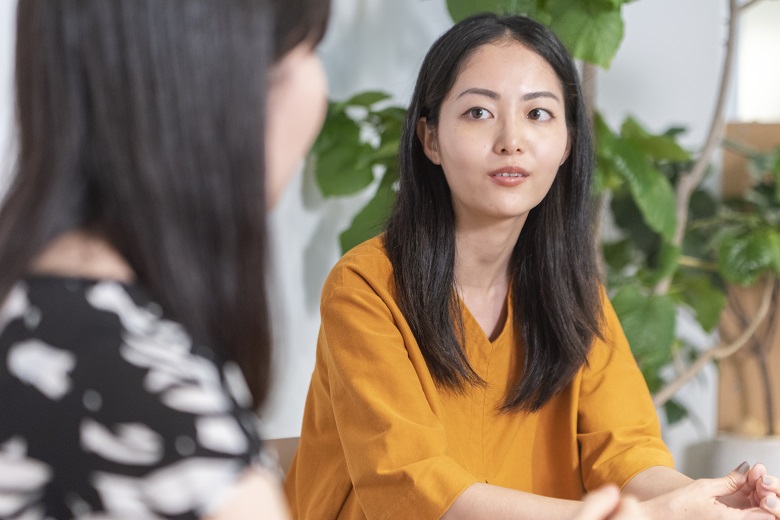
Takahashi: Indeed, rather than providing knowledge, it is astonishing and emotional. People learn by being tied to emotions rather than knowledge.
Hayakawa:Oh yeah.
Takahashi: By the way, when Bitcoin became so popular about two years ago, everyone started studying blockchain and virtual currencies all at once. I was a little jealous of it.
Hayakawa: Is everyone desperately trying to learn about Bitcoin?
Takahashi:Okay. If you want to learn that, you should learn more about life science! What?
Hayakawa: That's right!
Takahashi: I think most people weren't just looking for knowledge of cryptocurrencies, but started studying with emotions, such as envy because they were profitable.
Therefore, in reality, it is meaningless to convey the knowledge that "learning is important" in life science, and I think it is necessary to have an emotionally linked experience such as such fun and fun.
Furthermore, what makes science different from technology is that it is "a discipline that is not always useful in the short term." Everyone learns that it is easy to think that short-term benefits can be obtained in a way that is tied to emotions, like Bitcoin.
But I don't know if science is "useful" in the short term. For example, some of our employees have been studying insects at university for a long time, but they didn't immediately think they were "useful", but they were purely fond of them.
However, because people who are not limited to short-term profit thinking have researched, for example, the time has come when knowledge is utilized in the form of insect food, which was unexpected in the past, and plastics are powered by insects. There is also the possibility that it can be disassembled. I think that the unknown part of science, "I don't know when and who will be useful," is also an important part.
One day, if I had the opportunity to work with Mr. Hayakawa in the field of science, I felt that it would be interesting.
Hayakawa:Sounds good! What I am trying to do in the sanitary napkin industry right now is the matching of economic rationality and thought. Philosophy and thought alone do not make money, so I want to establish it as a business.
Personally, I would like to do something from the outside to raise awareness of the science field and increase profitability.

Takahashi: Learning new things like that is an act of consuming energy because it uses your head, but I think that the larger the energy consumption, the more you can feed yourself. The state of constantly learning, the state of increasing knowledge.
Hayakawa: That is "depletion".
Takahashi: Maybe so. I think it's more happiness to define a state than to be able to achieve it. For example, getting some qualification is "achievement", isn't it? I'm happy the moment I achieve it, but I'm unhappy after I achieve it. Rather, I think it is more constructive to aim for a "state" that keeps learning or a "state" that keeps achieving new things.
In 2003, the human genome, but it's all has been deciphered, but the sequence of the genome had been expected when it is decrypted with all of life is resolved, in fact, found that the sequence is not known anything be deciphered It was. At this time, I thought it was "the best". In other words, the state of being able to "continue to explore" is in the field of life science and always makes me happy.
Hayakawa: When various knowledge is connected through learning, you can feel that "life has become gorgeous". In the world of science, there will be new discoveries one after another. Imagine it looks really interesting. I am also looking forward to.
* Honorific titles omitted in the text
Composition: Tomoko Hatano / Photo: Yuji Tanno / Editing: Yu Oshima

